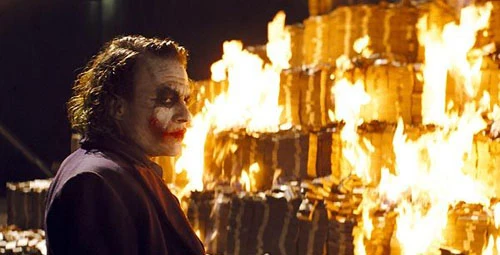Heard the Powerball math on the radio the other day; it was a conservative talk radio station, so it goes without saying that all the math that follows here is racist and homophobic.
So you pay two dollars for a Powerball ticket. Only half of it goes into the award pot. The other half goes to your state government, allegedly for education, though in your heart, you know full well what your public servants do with it:
When the prize is $500 million, that means the total revenue from tickets sold is around $1 billion. So you're paying a 50% tax right off the top.
Say you win the $500 million. If you take the lump sum, you get $327 million, but that's before federal tax. After the IRS gets its 25% cut, you're down to $245 million. Then your state tax kicks in. Virginia's is 4%, so knock another $13 million off. So now you're down to $232 million.
So on $1 billion in Powerball ticket sales, the government takes all of it except $232 million, right off the top. In other words, running Powerball gets the government an effective 77% tax rate.
But your government isn't done yet. That's assuming you don't spend all your winnings before you die (a surprising number of people end up filing for bankruptcy just a few years after winning a ton of lottery money, believe it or not). The death tax is currently 35% and applies to estates over about $5 million. So if you've spent only about $32 million before you take your long dirt nap, Uncle Sam gets at least another $68 million, and maybe as much as another $109 million if the full death tax is ever reinstated.
Conclusion: Don't complain your taxes are too high while you're at the 7-Eleven buying a Powerball ticket. There's a reason lotteries are called a tax on the numerically illiterate.
And speaking of innumeracy... You want a graphic idea what you're up against when you play the lottery? The recent Powerball odds of winning the jackpot were something like one in 175 million. In case you can't visualize what "one in 175 million" means, try the following thought experiment:
Imagine a row of 175 million pennies. Start walking along that row of pennies, and when the spirit moves you, pay your lottery agent two dollars and have him pick up a penny entirely at random from the row at your feet. You're hoping that the penny you just paid two dollars for is the single penny in that entire row of pennies that has the words, "Powerball Jackpot!" etched into it.
Did I tell you that row of pennies would stretch all the way from Washington, DC to El Paso, Texas? That's 1,963 miles.
Yeah, your odds of winning the Powerball are about the same as your odds of picking out one particular penny in a row of pennies that's about two thousand miles long.
Still can't visualize it? Try having a look at this.

That's a pile of 100 million pennies. So imagine seeing a pile almost twice as high as this one, and plunging your hand into it and miraculously pulling out the
If you're rich enough to play the lottery, you're rich enough to just flush a couple of bucks down the toilet every morning.



The fact is that eventually someone does win, and if you don't buy a ticket then you can never be that person.
ReplyDeleteThe point was that you'll never be that person anyway. 1/175000000 is 0.000000571% chance of winning. That's zero even at 6 significant figures (and most high-end engineering or accounting stops at 3).
ReplyDelete